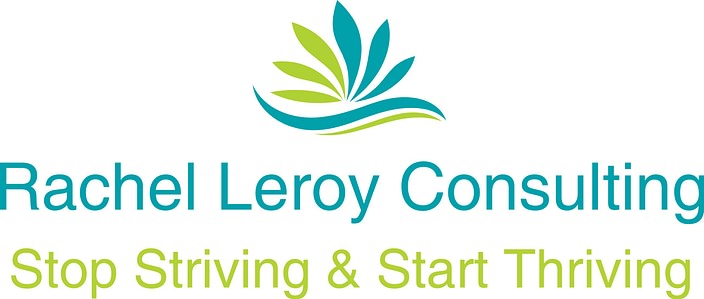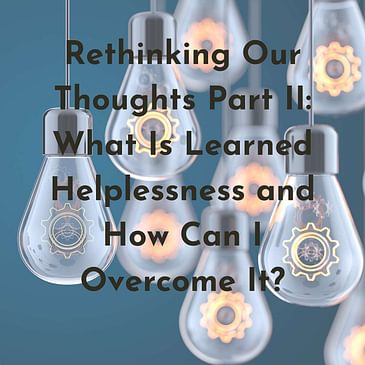Rethinking Our Thoughts Part II: What Is Learned Helplessness and How Do I Overcome It? is the second part of a two part series. Last episode, we discussed cognitive distortions and how they contribute to the trauma cycle. Similarly, learned helplessness is "a condition in which a person has a sense of powerlessness, arising from a traumatic event or persistent failure to succeed. It is thought to be one of the underlying causes of depression," according to Oxford Languages. Learned helplessness is the opposite of grit, which we discuss often on the channel. This episode discusses how learned helplessness occurs, who it impacts, and how we can get our lives back by practicing it's opposite: Learned Optimism. which a is cultivated practice that helps us develop grit, hope, and flexibility in the face of adversity, even if we've experienced trauma in the past.
Time Stamps
1:17 Intro to Topic
4:23 What Is Learned Helplessness?
22:36 Causes, Symptom, and Effects of Learned Helplessness
25:32 The Solution: Learned Optimism
Sources:
What Is Learned Helplessness? Medical News Today by Jayne Leonard
Learned Helplessness and CPTSD Psych Central by Jared C. Pistoia
Learned Optimism: How to Change Your Mind and Your Life by Martin Seligman
Season 1: Episode 8: Flip the Script of Your Life: Personal Narratives and Learned Optimism is episode recommended from this talk.
Christian Emotional Recovery Resources
Podcast Website
Access Episodes, Get Free Resources, and More
https://christianemotionalrecovery.com/
Facebook Group
Join Community, Get Support, and Get Weekly Encouragement
https://www.facebook.com/groups/christianemotionalrecovery
YouTube Channel
Subscribe for Exclusive Material Not on Podcast
https://www.youtube.com/channel/UC4a5jGXZ0-qzPINAspnLwPw
Christian Emotional Recovery Store
Get meditations, infographics, journals, and other resources for your healing journey
https://www.rachelleroy.com/9527496b-b1ed-4744-875f-dd04bfd3ad2a
Trauma Survivors
Check out Resources Page for Trauma Survivors
https://www.rachelleroy.com/bc953a63-...

